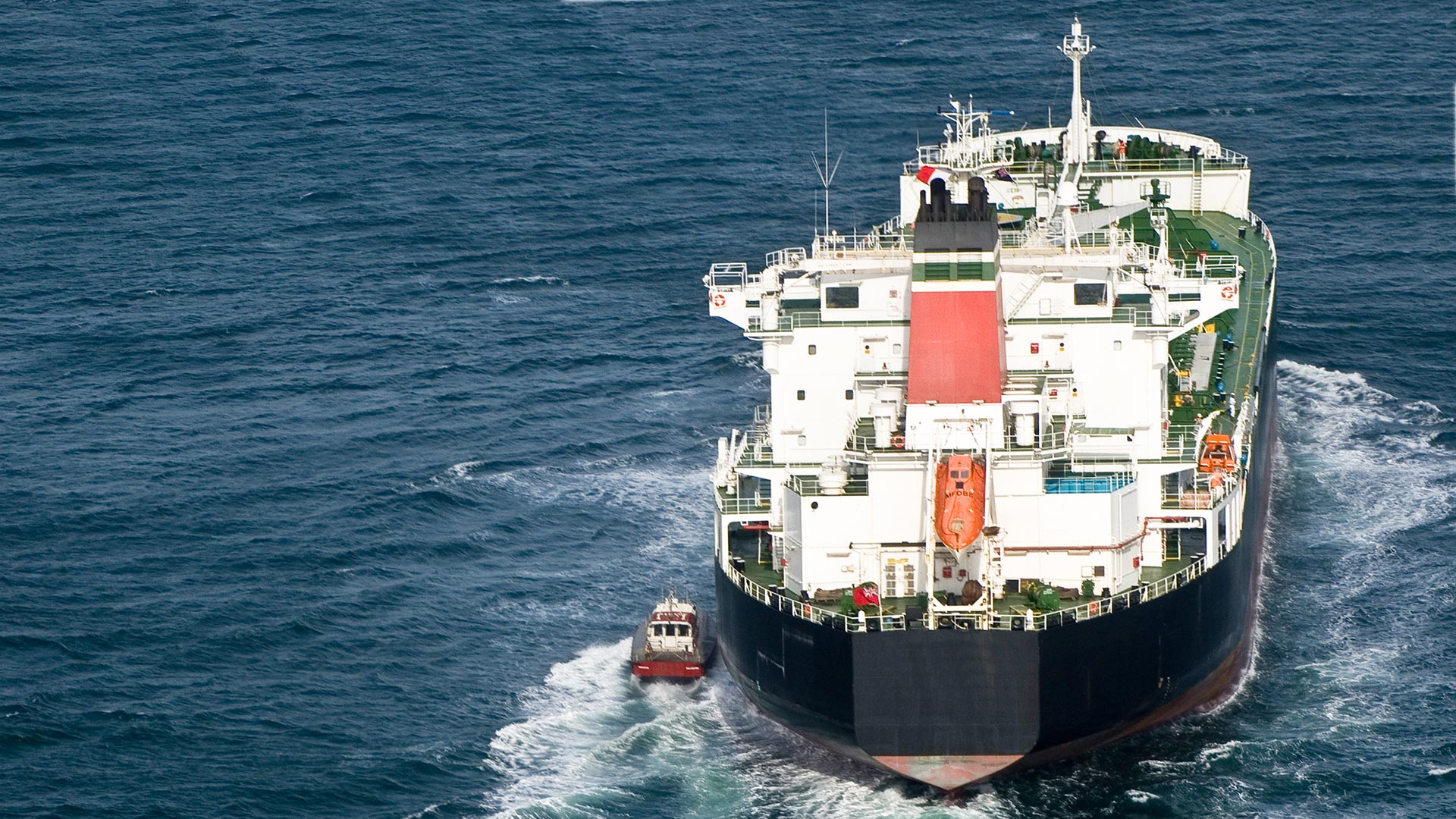Executive summary
In a recent opinion, CITGO Asphalt Ref. Co. v. Frescati Shipping Co., Ltd., 140 S.Ct. 1081, 2020 WL 1496603 (U.S. Mar. 30, 2020) (Athos I), the US Supreme Court (Justice Sotomayor writing for a 7-2 majority) held that an unqualified safe berth clause in an ASBATANKVOY form charter party imposed an absolute warranty of safety—not a due diligence obligation—on the vessel charterer.
While the Court's ruling will have profound consequences for the liability of the charterer in the case, it is less clear what lessons future charterers, particularly in the liquid bulk market, should take from the Court's central holding. Certainly, the base lesson of Athos I for charterers is that they should expressly negotiate, where market leverage permits, for safe berth/port clauses that impose a duty of due diligence, rather than an absolute warranty of safety. The Court's concluding remarks reaffirm a charterer's freedom to do so – "Charterers remain free to contract around unqualified language that would otherwise establish a warranty of safety, by expressly limiting the extent of their obligations or liability." Athos I, 140 S. Ct. at 1093.
That said, most major tanker charterers have already learned this lesson. That is why liquid bulk charterers often contract around the safe berth warranty either by selecting a base charter form that contains due diligence language or by incorporating the concept into bespoke rider clauses. Stated differently, tanker charterers typically agree to exercise due diligence to order the vessel to safe ports and berths, but do not warrant the safety of those ports or berths.
Therefore, for liquid bulk charterers, the critical question is – what level of diligence must a charterer exercise to satisfy its contractual obligation? More specifically, what berth/terminal vetting procedures must a charterer establish to ensure that in the aftermath of a casualty, it can successfully convince a court or arbitration tribunal that it exercised the requisite level of diligence? While the Supreme Court's decision in Athos I is significant for resolving a circuit split and for harmonizing US law with English law, it leaves these "diligence" questions unresolved.
Facts of Athos I
In November 2004, an asphalt refining company affiliated with CITGO (referred to here as CITGO) chartered a 748-foot oil tanker called the M/T Athos I ("Athos") to transport heavy crude 1,900 miles from Venezuela to its refinery in Paulsboro, New Jersey. Athos I, 140 S. Ct. at 1085-86. CITGO designated its Paulsboro refinery as the Athos' discharge berth. Id. at 1086.
The relevant voyage charter contained the following safe berth clause:
SAFE BERTHING — SHIFTING. The vessel shall load and discharge at any safe place or wharf, or alongside vessels or lighters reachable on her arrival, which shall be designated and procured by the Charterer, provided the Vessel can proceed thereto, lie at, and depart therefrom always safely afloat, any lighterage being at the expense, risk and peril of the Charterer.
This language was taken almost verbatim from the ASBATANKVOY industry form. Id. at 1086.
While berthing at the refinery, approximately 900 feet from its final destination, the Athos hit an undetected, nine-ton anchor that had been abandoned on the floor of the Delaware River. Id. at 1086-87. The anchor pierced the vessel in two places, resulting in the loss of approximately 264,000 gallons of heavy crude in the Delaware River. Id.
Under the Oil Pollution Act of 1990 (OPA), the vessel owner (Frescati) and the United States government divided the cost of the environmental clean-up, which amounted to more than US$130 million. Id. However, OPA permitted Frescati and the government to seek recompense from other responsible parties. Id. Frescati and the government did just that, suing CITGO and alleging that CITGO breached the safe berth clause quoted above, meaning CITGO should be liable for the clean-up costs. Id. at 1087.
After a "41-day trial, a subsequent 31-day evidentiary hearing, and two appeals," the Third Circuit held that under the language of the safe berth clause, CITGO was liable for the clean-up costs, regardless of CITGO's diligence or lack thereof in selecting the berth. Id. CITGO appealed to the US Supreme Court, which took the case to "resolve whether the safe berth clause at issue here merely imposes a duty of diligence, as the Fifth Circuit held in a similar case, or establishes a warranty of safety, as the Second Circuit has held in other analogous cases." Id.
Supreme Court opinion
In its March 30, 2020 opinion, the Supreme Court affirmed the Third Circuit and agreed with Frescati and the government that the safe berth clause was an absolute warranty of safety, provided by the charterer. The Court's analysis "start[ed] and end[ed] with the language of the safe berth clause." Id. at 1088. First, the Court held that under the safe berth clause, the charterer "shall ... designat[e] and procur[e]" a "safe place or wharf," "provided [that] the Vessel can proceed thereto, lie at, and depart therefrom always safely afloat." Id. Second, the clause requires that the berth be "safe." Id. Hence, under a straightforward textual analysis, (1) the charterer had a duty to select the berth, and (2) the berth must be safe. There was no language in the clause about diligence, fault, or reasonableness, meaning CITGO's duty was absolute, akin to strict liability.
In support of its reasoning, the Court pointed out that other provisions in the contract made reference to ideas of diligence and reasonableness, meaning the parties knew how to invoke these notions but declined to do so in the safe berth clause. Id. at 1090 ("Where the parties intended to limit obligations based on due diligence elsewhere in the charter party, they did so expressly."). The majority also noted that other industry form contracts, not selected by the parties, limited the charterer's obligation to exercise due diligence in selecting a safe berth.
Lessons for charterers from Athos I and the uncertainties that remain
Athos I reaffirms the lessons that many sophisticated tanker charterers have already learned – avoid an absolute, unqualified safe berth warranty and negotiate for a due diligence obligation. But, a due diligence clause is no silver bullet. Such language does not absolve the charterer; rather, it shifts the inquiry to what due diligence activities the charterer took prior to ordering the vessel to a particular berth.
One leading maritime treatise has defined the charterer's due diligence obligation as whether, after making proper inquiries and taking precautions, a reasonable and prudent charterer would order the vessel to a particular port or berth. But, what are the "proper inquiries" and "precautions" that are sufficient to protect the charterer? Unfortunately, neither charter parties nor the law interpreting them provide a comprehensive checklist. Indeed, the same treatise acknowledges that the "content of the diligence obligation has not been authoritatively determined."
Prior court and arbitral tribunal decisions have announced the general rule that charterer due diligence means the degree of care that a reasonably prudent charterer would exercise in like or similar circumstances in the conduct of his own business. In applying this general rule, courts and tribunals have considered whether the charterer performed in-person surveys or electronic/questionnaire vetting of the berth, the historic track record of vessels with similar dimensions and draft safely using the berth, inquiries the charterer made with local maritime authorities and the terminal operators and other similar vetting activities. A careful and painstaking review of these court and arbitral decisions can provide some practical guidance about what charterer due diligence means.
Of course, a charterer's due diligence is never litigated in a vacuum. It is typically discussed in conjunction with other elements like whether the berth was actually safe, whether the unsafe condition caused the casualty, and whether the casualty could have been avoided by prudent seamanship. Accordingly, courts and tribunals sometimes conflate the due diligence analysis with these other factors. As an example, the initial district court opinion in the Athos I case, issued in 2011 and subsequently overruled, noted that CITGO had met its due diligence obligation as charterer, but then, without explaining what vetting conduct by CITGO constituted due diligence, went on to discuss the reasons why the berth was safe.
Moreover, the scope of the diligence duty varies along geographical and chronological axes. Actions that satisfy the diligence standard in one harbor or waterway may be wholly inadequate in another. Because industry standards and technology evolve over time, conduct that met the diligence standard in a prior case, may fail to do so in future years.
Further still, the scope and extent of the required diligence varies based on the specific unsafe condition at issue in a particular case. By way of example, diligence in ensuring that a berth is free from subsea obstructions is not relevant where the unsafe condition alleged by the vessel owner is the unavailability of sufficient numbers of harbor tugs. Accordingly, whether a charterer has sufficiently discharged its due diligence duty is a highly fact intensive and case-by-case determination.
All of this creates a complicated maze that charterer's must navigate to accurately assess their obligations and mitigate risk. Notwithstanding the complexity of the problem, charterers should methodically approach their due diligence obligations by developing vetting practices that keep abreast with industry standards and evolving case law and that are consistent with the company's overall approach to HSE issues but also customized to the unique risks of a particular terminal.




